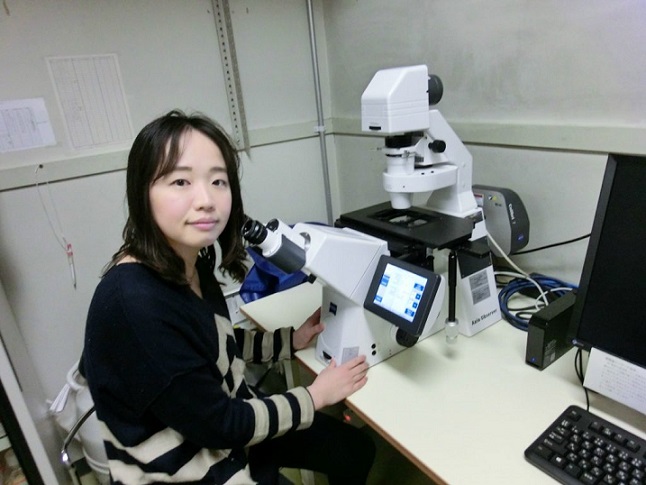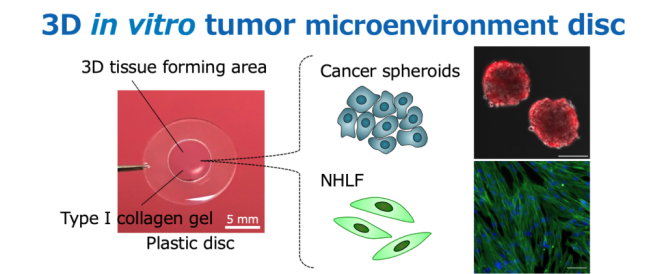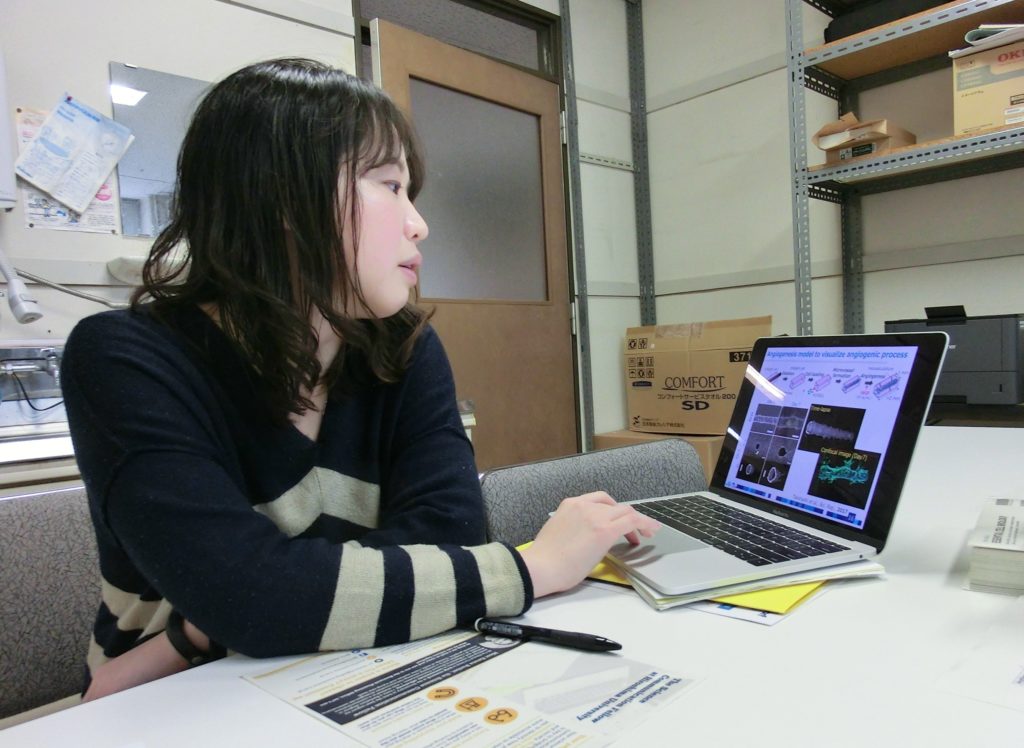Assistant Professor, Graduate School of Integrated Sciences for Life- Haruko Takahashi

Can you please describe your field of research?
So, cancer is a very huge topic, and everyone has an interest in that. As you may know it’s a very severe disease but also its related to our body itself because cancer cells come from our own body. We have cells that should live in a normal state but can turn into a abnormal state. This transformation is happening in our body and it is related to our diseases and we want to demonstrate that type of thing in our research.
Medical doctors want to treat them but as a biologist we want to know why cancer happens in our body. So, now I’m working on the communication between the cells. Sometimes the cell-cell communication is promoting to growth of the other cells, sometimes it suppresses the growth of other cells. If we can know the how the cells communicate to each other and the cancers, we can tell the cancer cells “Please stop!”. So, I want to figure out either how or what to communicate to cancer cells. That’s my dream.
What got you into this field?
I originally came from the chemistry field. For my major (my PhD) I made polymers to treat cancers or other diseases. I made polymer-based nanocapsules, as nanocarrier for “drug delivery systems”. It was more biomaterial science, but you know by using this type of technology maybe we can go to the simpler, basic science questions like “why do we have cancer cells?”.
All technology is developed to answer the simple questions, even when we go to space or in the deep sea of course we just want to know what’s happening there. So, I started to think that my technology could be applied to the medical or biological field.

Takahashi is researching tumor microenvironments in order to understand more about cancer in the human body
And of course, Hiroshima University chose me, that’s a simpler answer!
What achievement you are most proud of?
It’s a difficult question. I came here last April (2018) so I’ve just spent one year in Hiroshima University. When I came here, I started to develop my laboratory to start my research. Two undergraduate students joined this laboratory at the same time and they helped me. One of them graduated last March, that’s very impressive to me. Sometimes he was down and said “I cannot do that thing” but we spent time in the laboratory together and now he will go to start his next career. Actually, I feel more like it’s a relief but it’s still impressive to me.
Can you describe some challenges of your work?
Ok so almost related to the last topic but I need to work with students, so my research success is always dependent on my students. It’s quite different from my earlier career because I had to work hard and show good results but it was really only on myself. Now it’s more of a team-play. I really hope their success and it’s also my success. So that’s why it’s tough, sometimes some students don’t come for one week and I can’t know what’s happening. I cannot control them because they are not robots, they are human beings which is fantastic but also challenging. Education is our prior mission and it deeply connects our research accomplishment. Of course, I want to publish a paper in Nature but I think if I had to choose between that and my student’s success I would choose their success first. That’s laboratory life for me, I think it’s challenging but interesting.
What motivates you in your research?
The simple motivation for why I do research is seeking the answer to the question of why we make cancer cells in our body. But I think education and research work are very connected to each other. I think good work comes from good education. My motivation is to have a good atmosphere for good research for all lab members including students.
Sometimes it’s hard if someone asks me something which is not my expertise and I think “I should know that. I should keep my mind more open. I need to meet this student next week which means I should know that type of thing.” It’s challenging but it’s good stress I think.
What do you like to do when you’re not working?
I love sleeping! I try to have a good rest so I can show good ability in my work. I am starting to exercise here because I want to make my body tough to be able to work for a long time. At the same time it’s a very good for relaxing because at that moment I don’t think about next weeks’ agenda or that student that has some kind of trouble. It’s important to have on-time and off-time.
Anything exciting coming up in your research?
Now I’m working on the tumor microenvironment. Tumor cells construct a kind of tissue so we don’t only have cancer cells but also lots of different types of cells connected to it. I want to know why the cancer cells can make a good microenvironment for [the tumor] to be ‘comfortable’ and be able to grow.
I’m always working in materials science and related medical application but in Hiroshima University the fields are very expansive. Of course, a researchers’ specialty is very important but sometimes we should know lots of topics and we only know that from other researchers. It’s interesting and I’ve had my eyes opened to the type of things we do here.

Takahashi explains her work on cancer cells
What makes a great work environment?
In my laboratory we have lots of Japanese and international students. Japanese students are a little bit shy and international students are more active so it’s very different as they come from different cultural backgrounds. I want to make a type of environment which can let them communicate and get to know each other. It’s a laboratory-dependent life but still it’s good for their next career, even in a company where they need to meet many people. Of course, we can use good equipment for our research, which are mainly shared in the university, so there’s no worries about facilities, but a team-working environment is very important, I think. They spend several years in the laboratory, so we have a responsibility to try to make this environment good for them.
What do you like to do when you’re not working?
I love sleeping! I try to have a good rest so I can show good ability in my work. I am starting to exercise here because I want to make my body tough to be able to work for a long time. At the same time it’s a very good for relaxing because at that moment I don’t think about next weeks’ agenda or that student that has some kind of trouble. It’s important to have on-time and off-time.
Originally written by Emma Buchet (Hiroshima University Science Communication Fellow)
Originally published on May 22, 2019

 Home
Home